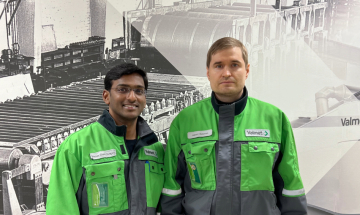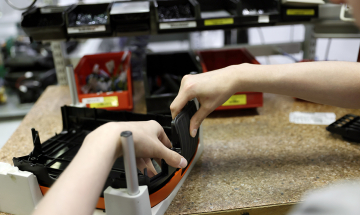
Strike ended – a new collective agreement concluded for the salaried employees in technology industries
On Saturday, Pro rejected the settlement proposal provided by conciliator Jukka Ahtela. However, the work to resolve the industrial dispute continued on Sunday, and the parties were able to agree on a settlement through the negotiations lead by Ahtela.
The new collective agreement period is 25 months, with the total pay increases during the agreement period amounting to 3.3%. The level of pay increases is the same as in the previous agreement for technology industry employees, but the company and workplace-specific increase in the settlement is a little higher. The negotiated settlement covers approximately 27,000 salaried employees.
The primary premise is that the amount of pay adjustments, the schedule and implementation method are agreed locally while taking into account the company’s circumstances. If no local pay settlement can be agreed, wages and salaries are adjusted in accordance with the so-called fallback clause of the collective agreement.
According to the fallback clause, the total increase of 3.3% is divided as follows: In the first agreement year, a general pay increase of 1.3% will be applied by 1 March 2020. In the second agreement year, a general pay increase of 1.2% will be applied no later than on 1 February 2021. In addition, a company or workplace-specific increase of 0.8% will be applied on 1 February 2021.
CUSTOMISED WORKING TIME AGREEMENT
The controversial issue of working time was resolved so that the hours included in the Competitiveness Pact are no longer applied in that particular form but are replaced by several elements that increase working time and flexibility and improve competitiveness.
Based on justified production-related needs, the employer may decide to extend the working time in day and two-shift work so that the maximum daily working time is 10 hours and the maximum weekly working time 50 hours. This can be done for a maximum of 20 work shifts and for six weeks in a calendar year. Working time shall later be balanced so that it complies with the regular working time.
In addition, it was agreed that working time may be extended by a maximum of 32 hours per year through local bargaining. If agreeing on an extension to working time fails regardless of a justified production-related reason, the employer may nevertheless assign to employees 8 additional hours with basic pay. However, these 8 hours may not be scheduled for weekday holidays or a Saturday of such weeks, which would have been possible under the terms of the settlement proposal that was rejected. In addition, 8 hours of training organised by the employer may be scheduled for a day off.
“It is valuable that an agreement was reached and the industrial action was short-lived. The working time elements in the settlement are different from those in agreements that were concluded earlier in the negotiation round. The working time settlement takes into account the specific needs of technology companies in terms of work carried out by salaried employees,” says Jarkko Ruohoniemi, Director, Industrial Relations from Technology Industries of Finland.
Once the new collective agreement has been signed, Technology Industries of Finland will continue the collection of Trade Union Pro’s membership fees.
Further information:
Jarkko Ruohoniemi, Director, Industrial Relations, tel. +358 (0)40 833 9577


